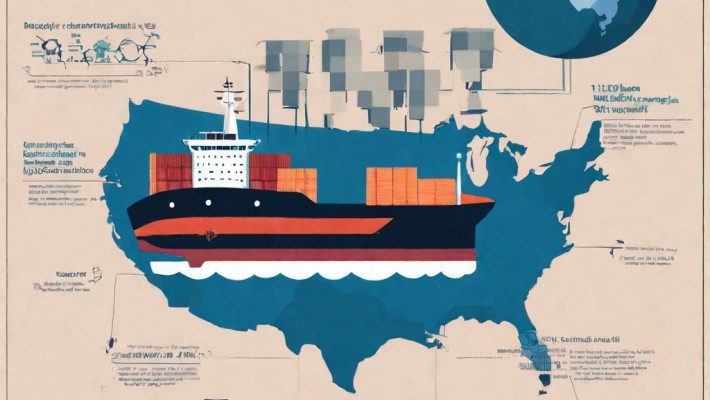Freight Forwarder Insights
Huin International Logistics Latest Articles
The Role of Ocean Containers in International Shipping and Their Impact on the Global Economy
The world of international shipping is a complex and interconnected network that forms the backbone of the global economy. At the heart of this vast industry lies a seemingly simple but indispensable tool: ocean containers. These metal boxes, which come in various sizes, have revolutionized the way goods are transported across continents and oceans, providing immense benefits to businesses and consumers worldwide.
Ocean containers, also known as shipping containers or freight containers, have
become an essential part of international trade due to their efficiency and
convenience. They are designed to withstand the harsh conditions faced during
long voyages at sea, protecting goods from damage and ensuring their safe
arrival at their destination. The standardization of container sizes has
enabled seamless integration between different modes of transportation,
allowing cargo to be transferred seamlessly from ships to trains or trucks,
eliminating the need for time-consuming and costly repackaging.
The impact of ocean containers on the global economy cannot be overstated. As
the global population continues to grow, the demand for goods and services has
skyrocketed, leading to an exponential increase in international trade. The use
of ocean containers has played a crucial role in facilitating this trade,
making it possible for businesses to source materials and products from around
the world at competitive prices. In fact, according to the World Shipping
Council, more than 90% of the world's trade is carried by the international
shipping industry, with the majority of these goods transported in ocean
containers.
One of the key advantages of using ocean containers is their ability to
maximize cargo space. By effectively utilizing the available volume, shipping companies
can transport larger quantities of goods, reducing the cost per unit and
increasing profitability. This efficiency has allowed businesses to tap into
new markets, expand their customer base, and achieve economies of scale. It has
also fostered the growth of global supply chains, with manufacturers and
suppliers located in different countries working together seamlessly to produce
and deliver the products we rely on every day.
In addition to driving economic growth, ocean containers have also contributed
to reducing carbon emissions and promoting sustainability. The standardization
of container sizes has led to optimized cargo capacity, reducing the number of
trips required to transport goods and minimizing fuel consumption. Moreover,
the use of containers has enabled the shift from breakbulk shipping, where
goods are loaded individually onto the ship, to containerized shipping, which
significantly reduces the time spent in port and the associated emissions. As
the world becomes more conscious of the need to address climate change, the
role of ocean containers in promoting sustainable transportation has become
increasingly important.
However, it is also worth noting that the growing reliance on ocean containers
has presented challenges as well. The demand for containers has outpaced supply
in recent years, leading to container shortages and rising costs for
businesses. This can have a particularly severe impact on industries such as
agriculture and retail, which rely heavily on timely access to containers to
transport their perishable and time-sensitive goods. As the global economy
continues to recover from the disruptions caused by the COVID-19 pandemic,
addressing container shortages and ensuring a steady supply of containers will
be crucial for sustained growth and stability.
In conclusion, ocean containers have revolutionized international shipping and
have become an integral part of the global economy. Their standardized sizes,
efficiency, and convenience have facilitated the seamless movement of goods
across continents and oceans, enabling businesses to expand their reach and
consumers to access a wide variety of products at competitive prices. While
their impact on economic growth and sustainability cannot be understated,
addressing the challenges associated with container shortages will be key to
ensuring the continued success of international trade in the years to come. As
the world becomes increasingly interconnected, the role of ocean containers
will remain vital in enabling global commerce to thrive.
